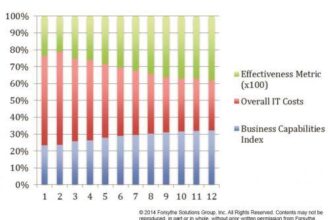A few years ago, talk about improving cyber security for a business qualified as a strong recommendation. Now, it’s become an absolute requirement, especially given the potential legal repercussions that may follow if you don’t have proper measures in place.
Several massive data breaches have occurred in the last few years. The most notable incident in 2017 was the Equifax data breach, in which 143 million Americans had their personal information compromised during the months of May, June, and July.
Hackers swept up Social Security numbers, full names, driver’s license numbers, birth dates, addresses, and credit card information. It was a goldmine for identity thieves and a nightmare for Equifax customers.
The legal ramifications were swift and severe. Not only does the company face significant payouts, but it’s also undergoing severe legal scrutiny.
Since that breach involving a major New York Stock Exchange-listed organization, regulations on cyber security have tightened, and the legal repercussions have grown more stringent. Businesses both large and small are being reminded of the vast importance of taking proper cyber security measures for their operation, or they could suffer one or more of the following consequences.
1. Consumer Lawsuits
Up to this point, your biggest concern was probably a personal injury case from a slip and fall incident. Although you certainly should be properly insured against that, you should also worry about the legal claims a consumer could make if you improperly secure his or her information.
Consumers have successfully sued a company for wrongfully disclosing their information, whether due to hacking or employee negligence, in hundreds of cases. The result has been millions paid out by businesses each year, and many failed to recover.
Consumers sue on the ground that they were promised their information would remain secure, but the defendant companies failed to comply. In some cases, a defamation claim may also be involved, in which a data breach resulted in someone’s ruined reputation.
Such claims should be taken seriously because so many clients have had grounds for winning their case.
2. Criminal Charges for Evading Regulations
Many states have strict regulations regarding cyber security laws, based on strong privacy principles that go back to the U.S. Constitution. Businesses must also abide by federal regulations.
In order to uphold these stiff privacy agreements, businesses are required to observe certain laws. One of the most heavily enforced cyber security regulations can be found under the Health Insurance Portability and Accountability Act (HIPAA). This mandates that all healthcare organizations keep consumer information private under severe penalty of law, including that stored and circulated in digital mediums.
More recent laws include the Cybersecurity Information Sharing Act, Cybersecurity Enhancement Act, and Federal Exchange Data Breach Notification Act. These are designed to strengthen cybersecurity measures in organizations, keep consumers informed when their data is breached, and raise public awareness of the potential of cybersecurity risks.
Failure to adhere to these laws by any company can have severe consequences that range from a hefty fine to jail time.
3. Potential Business Shut Down
Though many major corporations who have faced a severe cyber security attack have survived (albeit less profitably), many others will suffer heavy consequences. According to research, about 60 percent of businesses that encounter cyber security breaches will shut down within six months after the incident.
This is largely due to the expenses associated with cyber security attacks. Victimized firms encounter hefty attorney fees, compensation dues, cybersecurity protections, and more to cover, and many small-to-mid-sized businesses are unable to absorb the cost.
Unfortunately, small businesses are the most likely to suffer a cyber attack, and therefore the legal repercussions. Research also shows that about 50 percent of small businesses have experienced a cyber attack and more than 70 percent of attacks target small businesses.
Because of these threats and the powerful legal ramifications, small businesses must be keenly aware of the need for cyber security in their business. Thorough cyber security protection is an absolute necessity for any company starting up today.
If you think the expense is too much, consider the potential expense of suffering an attack.







